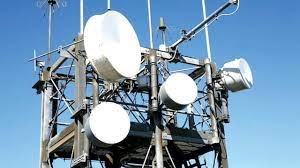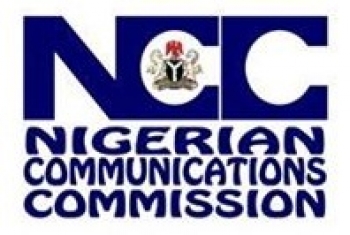Telecoms operators threaten discriminatory tariffs to curb states’ excesses
Telecommunications operators are considering jettisoning uniform tariffs, especially on voice services in the country. The implication of the move, if implemented, is that subscribers would be charged differently for telephony services depending on their locations.
The telcos under the aegis of the Association of Licensed Telecoms Operators of Nigeria (ALTON) made this known in Lagos yesterday. Speaking with journalists on the sidelines of the Nigeria eGovernment Summit 2023 organised by Digiserve, the Chairman of ALTON, Gbenga Adebayo, said the body was worried over consistent harassment by states and their agents, who clamped down on telecoms sites and imposed various forms of taxes and levies on service providers.
Adebayo said the body has been speaking against multiple taxation for years while nothing has been done. According to him, as it is, it may not be suitable for members to continue to render services the way they used to be.
“It may not be appropriate to continue to have one national tariff because the cost of providing services in one region is high, services in different regions should reflect the cost-of-service provision. If you have a state that has imposed 50 different taxes on the operator, the telcos need to pass it on to the subscribers there. Otherwise, we would remain on this issue for many years to come.”
The ALTON boss said telcos have spoken to the NCC about the issue, saying that they think the new move is the only way to mitigate the issue of multiple taxation and levies across state and local government levels.
According to him, the reality is that if the cost of doing business in a particular area is high, the cost of services in that area should also reflect the cost of doing business.
“It will be unfair on states that provide a bright friendly business environment to pay as much as states that have high hostility against service providers. And we believe that the time has come. Across different geographical regions, tariffs should vary. If you leave Lagos for Benin for instance, you would pay a different tariff. It is the same telephone service, but it is because regulations and rules in those regions differ. This is why end-user rates differ. So, we are saying that the time for national tariffs is gone. Today’s reality needs a new approach,” Adebayo stated.
The ALTON boss further explained that when a call originates from state A, it will attract a certain fee, which may be higher or lower than state B depending on the cost of providing services in the states.
“Let me take Lagos as a business-friendly state, if you cross to the border of the state say to Ogun (which for this illustration is not as business-friendly), the charges should differ.
“We are providing the NCC with data to back up this demand, but it is a direction that we must go. It is the only way to mitigate the multiplicity of taxes that exist because in some cases the cost of rolling out services is more expensive.”
The telecoms association chairman noted that the industry (telecoms) is expected to meet with the new Minister of Communications, Innovation and Digital Economy, Dr Bosun Tijani, in the next couple of days to discuss industry issues.
The Mobile Network Operators (MNOs) have been clamouring for an increase in tariff to cushion the effects of an economic downturn, multiple taxations, high operating costs and more in recent times. In 2022, they pushed for a 40 per cent hike in tariff.
Recently, the Executive Vice Chairman of NCC, Prof. Umar Danbatta, said there are about 46 different taxes directed at the telecoms sector. The Guardian had, a fortnight ago, reported how state governments’ crude revenue mobilisation approach is threatening ICT.
While the ICT sector is said to have contributed about 20 per cent to GDP, telecoms sub-sector singlehandedly contributed 16 the 20 per cent. But the ICT industry is said to be under serious pressure from state governments and their agencies, which see the sector as a cash cow, thereby harassing telecoms operators and shutting down base stations.
With the sector battling multiple taxation, vandalism, theft, rolling out of infrastructure has remained a major challenge, because states failed to support development because of Right of Way (RoW) levies.
As it is, only a few states have implemented the N145/linear meter agreed by the Nigeria Governors Forum as far back as 2020 and enshrined in the New National Broadband Plan 2020 to 2025.
While states like Imo, Plateau, Kwara, Enugu adhered to the N145 per linear meter, others such as Anambra, Ekiti and Kaduna implemented zero RoW charges to enable rapid infrastructure build-out for economic development.
But states including Bauchi charges N1, 000; Delta State, N2, 705; Abia State, N3, 000; Kwara State, N5, 500; Kano State, N2, 753; Borno State, N1, 650 and Sokoto State, N1, 600, among others.
Indeed, Kogi State is currently threatening to shut down telecoms sites due to taxes, while Osun State has started telecoms installations audit, with the hope of realising N500 million in revenue.


Fri, Sep 29, 2023.
by Emeka Opara